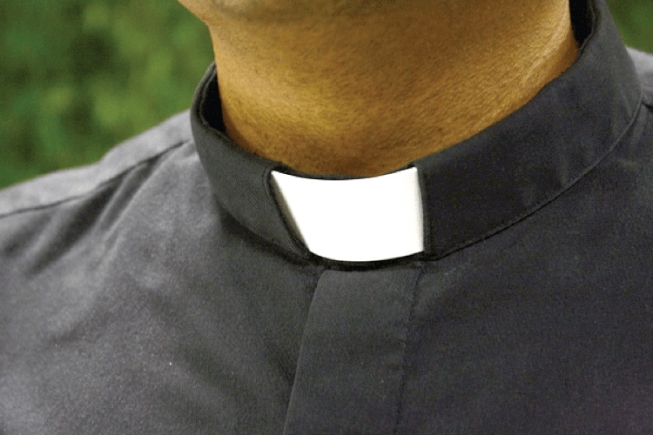
Can a pastor be sued for wrong ‘medical’ advice?
The quest for urgent medical solutions is driving some patients from seeking standard medical solutions. Thus, instead of going to the hospital upon falling sick, they prefer going to pastors, marabout, traditional healers, prophets, seers, mallams and prayer camps, among others, with the expectation of getting total healing at any cost.
So, when a patient seeks the services of a pastor for medical solutions, do these pastors become ‘medical doctors’ or drugless healers?
Or are they considered pastors performing their clerical duties? Is there a standard of test for these pastors in case the patient suffers from any wrong medical advice, like the advice to stop taking prescribed medication from the hospital?
What happens when the patient dies due to heeding this wrong advice?
I herein examine the legal aspect of a patient seeking medical advice or treatment from a pastor.
Legal controversy
In our jurisdiction, I have yet to see any malpractice suit against a pastor. However, in other parts of the world, like the US, also a common law jurisdiction, I have come across a few cases of malpractice suits brought against ministers of the gospel.
Though these cases are not binding in our jurisdiction, they could have a persuasive effect on clergy malpractice in our jurisdiction.
Malpractice
The first case is Nally v. Grace Community Church, 253 Cal. Rptr. 97 (1988). This case addresses “clergy malpractice”, where the California Supreme Court ruled that a church and some of its ministers were not legally responsible for the death of a suicide victim, who had been a member of the church and who had counselled with the ministers.
The court further reasoned that clergy has no duty to “refer” suicidal persons to medical professionals, observing that “because of the differing theological views espoused by the myriad of religions in our state and practised by church members, it would certainly be impractical, and quite possibly unconstitutional, to impose a duty of care on pastoral counsellors. Such a duty would necessarily be intertwined with the religious philosophy of the particular denomination or ecclesiastical teachings of the religious entity.”
Also a Texas court, in declining to recognise “clergy malpractice” as a basis for liability, reasoned in Sanders v. Casa View Baptist Church, 134 F.3d 331 (5th Cir. 1998):
“Because the [civil courts] must abstain from ecclesiastical disputes involving questions of doctrine or practice, state courts have rejected uniformly claims for clergy malpractice. This is because such a claim requires the definition of the relevant standard of care.”
In Schmidt v. Bishop, 779 F. Supp. 321 (S.D.N.Y. 1991). See also Jones by Jones v. Trane, 591 N.Y.S.2d 927 (Sup. 1992) where the court reasoned that it is injustice to interfere in the affairs of Presbyterian doctrines. Before the court can interfere, it is prudent to examine whether the Presbyterian pastor performs his duties in line with their doctrines and expertise in the same Presbyterian community.
Also, in a case involving a seduction allegation made against a catholic priest, the Colorado Supreme Court in Destefano v. Grabian, 763 P.2d 275 (Colo. 1988), declined to recognise the theory of “clergy malpractice”. The woman had claimed that the priest “negligently performed his duty as a marital counsellor.”
Even where the pastor gives the wrong advice, the pastor is not liable. In Bladen v. First Presbyterian Church, 857 P.2d 789 (Okla. 1993), the Oklahoma Supreme Court declined clergy malpractice as a basis for liability in a case brought by a husband for “bad advice” he had received from a minister.
Liability?
A few courts have recognised malpractice claims against clergy in either or both of the following two situations: sexual misconduct with an adult or minor; and non-religious” counselling
In DeBose v. Bear Valley Church of Christ, 890 P.2d 214 (Colo. App. 1994), the court only held the pastor for clergy malpractice when the pastor was a professional therapeutic counsellor and also performed his duties as a pastoral counsellor.
In this case, if the pastor provided the said counselling as a professional counsellor and not as a pastor, would be held liable to the standard of a therapeutic counsellor and not a pastoral counsellor.
This was further fortified in Barnes v. Outlaw, 937 P.2d 323 (Ariz. App. 1996), where the pastor said he was a therapist as well and counselled in his capacity as a professional therapist and not a pastor. Here he may be sued for “therapist” malpractice as a result of the pastor’s disclosure of confidential information shared with him by a counselee during counseling.
In Sanders v. Casa View Baptist Church, 134 F.3d 331 (5th Cir. 1998), a federal appeals court decided that two female church employees may sue the minister who had seduced them since he had “held himself out” as a qualified marital counsellor. This is because, at that particular church, the minister’s duties did not include counselling, and he was aware that he was not responsible for providing spiritual counselling to church members. He also knew that the church had a written policy of referring church members in need of nonpastoral counselling to a licensed professional counsellor.
Take home
From the courts' position, a pastor cannot be held for malpractice if he provides wrong medical advice to a church member if the church doctrines support the advice.
A pastor can only be held liable if he claims to be a professional, such as a medical doctor, and provides the advice in his capacity and not as a clergyman.
The writer is a professor of Naturopathic Healthcare, recently completing the Barrister at Law course at the Gambia Law School, Banjul.
E-mail:
